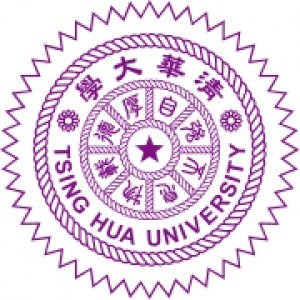Photos of university
Electrical Engineering at National Tsing Hua University offers a comprehensive and rigorous curriculum designed to equip students with a solid foundation in the principles and practices of electrical systems, electronics, and related technologies. The program emphasizes both theoretical understanding and practical skills, preparing graduates to innovate and excel in diverse fields such as telecommunications, energy, automation, and computer systems. Students will engage in cutting-edge research and development projects, benefit from state-of-the-art laboratories, and collaborate with industry leaders to gain hands-on experience. The coursework covers a wide range of topics including circuit analysis, control systems, signal processing, microelectronics, electromagnetic fields, and power systems. Additionally, the program encourages interdisciplinary learning and innovation, fostering critical thinking and problem-solving abilities essential for addressing complex technological challenges. Graduates of this program are well-positioned to pursue careers in academia, industry, or entrepreneurial ventures, contributing to advancements in electrical engineering and technology. With a strong emphasis on research and practical application, the Electrical Engineering program at National Tsing Hua University prepares students to become skilled professionals capable of leading engineering innovation and contributing meaningfully to society’s technological progress.
- Differential Equations and Complex Variables
- Linear Algebra
- Discrete Mathematics
- Modern Physics
- Electromagnetics
- Electric Circuits
- Logic Design Lab
- Microelectronics Labs
- Electronics
- Logic Design
- Introduction to Programming
- Microcomputer Systems
- Embedded System Laboratory
- Data Structures
- Probability
- Statistics
- Introduction to Semiconductor Industry
- Introduction to Optoelectronic Engineering
- Optoelectronic Engineering II
- Electromagnetic Waves
- Analog Integrated Circuits Analysis and Design
- Introduction to Solid-State Electronic Devices
- Optoelectronic Devices
- Computer Architecture
- Control Systems
- Signals and Systems
- Communication Systems (I)
- Introduction to Computer Networks
- Introduction to Digital Signal Processing
- Digital Signal Processing Lab
- Introduction to Image and Video Processing
- Electric Machinery
- Electric Machinery Laboratory
- Special Topic on Implementation (I)
- Special Topic on Implementation (II)
- Partial Differential Equations and numerical methods
- Special Topics in Power Engineering : Power Processing
- Special Topics in Biomedical Electronics : Introduction to Biological Systems and Electronics
- Introduction to Semiconductor Physics
- Introduction to Quantum Physics
- Principle of Lasers
- Optics and photonics laboratory
- Advanced photonics laboaratory
- Device Characteristics and Circuit Design
- Introduction to Microwave Circuits
- Electronic Circuit Design (Undergraduate, 3 credit hours, once a year)
- IC Design Laboratory
- Introduction to Integrated Circuit Design
- Biomedical VLSI Design
- Solid-State Electronics Laboratory-Semiconductor Processing
- Introduction to Biomedical Imaging
- Introduction to chaos
- Communication Electronics
- Communication Systems II
- Communications System Laboratory
- Power Systems I
- Industrial Power Distribution System
- Electric Machinery Control
- Undergraduate Research (I)
- Undergraduate Research (II)
- Special Topics in Biomedical Electronics: Clinical Application of Medical Electronic Device
- System theory
- Digital Signal Processing
- Advanced Electric Network Analysis
- Switching Mode Power Converters
- Principles of Biomedical Ultrasound and Photoacoustics
- Computational Neuroscience
- Image Processing
- Analysis and synthesis of digital audio signals
- Video Signal Processing
- An application form online application
- A photocopy of diploma in English and Chinese
- Applicants for bachelor degree programs must provide a photocopy of their high school diploma.
Applicants for master degree programs must provide a photocopy of their bachelor degree diploma.
Applicants for doctoral degree programs must provide a photocopy of their master degree diploma. - Official transcripts in English or Chinese
- Proof of English and Chinese proficiency. (PBT 550, CBT 213, iBT 79) or IELTS (5.5)
- Protests of Physics and Calculus
- Autobiography in English
- A study plan
Please provide a concise study plan with a maximum of three pages. In the study plan, applicants are encouraged to describe their motivation for choosing NTHU, and for choosing the specific department or program that they are applying. For graduate students, potential contribution to the department and research interests may also be included. - Two recommendation letters
Letters of recommendation are preferably from faculty members capable of evaluating the applicant’s academic qualifications and research potential. - Financial certificate
All applicants are required to provide a financial statement issued by a financial institution showing their financial sustainability (minimum US$ 4,000) for study in Taiwan, or a certificate of scholarship. If the submitted financial statement is not under the name of the applicant, then the applicant’s sponsor(s) must provide an affidavit indicating their relationship to the applicant and their intent to provide financial support throughout his/her period of study. - Declaration form
Print out the declaration form and sign at the bottom after reading it thoroughly. If applicable, we may ask the applicant to submit a copy of statement of travel record, or their Forfeited Nationality Permit Certificate issued by Ministry of the Interior and Non-Household Registration Declaration. - Verification of nationality
Applicants must provide a copy of their passport or some other acceptable verification of their nationality.
NTHU International Student Scholarship
● Doctoral. students: NT$ 10,000 per month
● Master Students: NT$ 5,000 per month
● Bachelor students: NT$ 5,000 per month
● tuition waived
Taiwan Scholarship
Ministry of Foreign Affairs
● NT$ 30,000 per month (no tuition waiver)
Ministry of Science and Technology
● NT$ 30,000 per month (no tuition waiver)
Ministry of Education
● Doctoral students: NT$ 20,000 per month
● Master's students: NT$ 20,000 per month
● Bachelor students: NT$ 15,000 per month
(tuition waived)
Additional Costs:
- Student Insurance Fee TWD 138 (per semester)
- National Health Insurance Fee TWD 749 (per month)
- Internet User Fee TWD 1,000 (per semester)
- Admitted undergraduate and graduate students may obtain a room shared with 1, 2 or 4 students. The dormitory expense is about TWD 16,170 to 27,800 for a single room, TWD10,170 to 16,600 for a 2-bed room and TWD 6,370 to 9,250 for a 4-bed room per semester.









